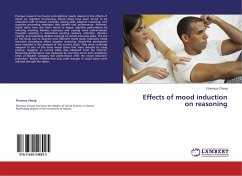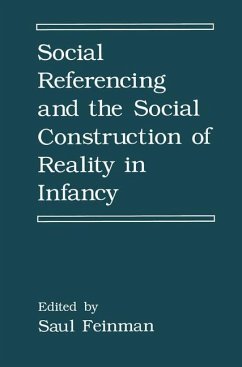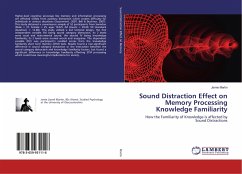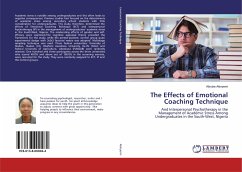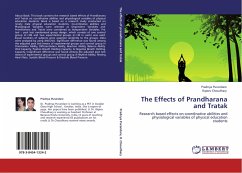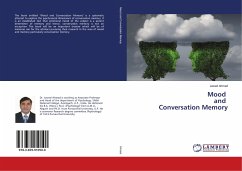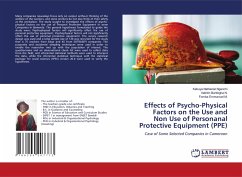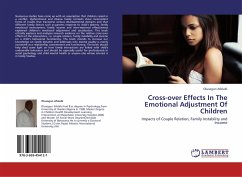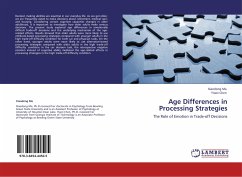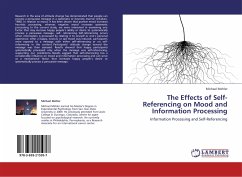
The Effects of Self-Referencing on Mood and Information Processing
Information Processing and Self-Referencing
Versandkostenfrei!
Versandfertig in 6-10 Tagen
32,99 €
inkl. MwSt.

PAYBACK Punkte
16 °P sammeln!
Research in the area of attitude change has demonstrated that people can process a persuasive message in a systematic or heuristic manner (Chaiken, 1980). In relation to mood, it has been shown that positive mood increases heuristic processing, whereas negative mood increases systematic processing. In the current study, we were interested in examining one factor that may increase happy people's ability or desire to systematically process a persuasive message, self- referencing. Self-referencing occurs when information is processed by relating it to oneself or one's personal experience. After a...
Research in the area of attitude change has demonstrated that people can process a persuasive message in a systematic or heuristic manner (Chaiken, 1980). In relation to mood, it has been shown that positive mood increases heuristic processing, whereas negative mood increases systematic processing. In the current study, we were interested in examining one factor that may increase happy people's ability or desire to systematically process a persuasive message, self- referencing. Self-referencing occurs when information is processed by relating it to oneself or one's personal experience. After a happy, neutral, or sad mood was induced, participants were exposed to a message with either self-referencing or no self-referencing in the content. Participants' attitude change toward the message was then assessed. Results showed that happy participants systematically processed only when the message was self-referencing, supporting our predictions. Results suggest that self-referencing hasa considerable influence on mood and information processing and can serve as a motivational factor that increases happy people's desire to systematically process a persuasive message.



